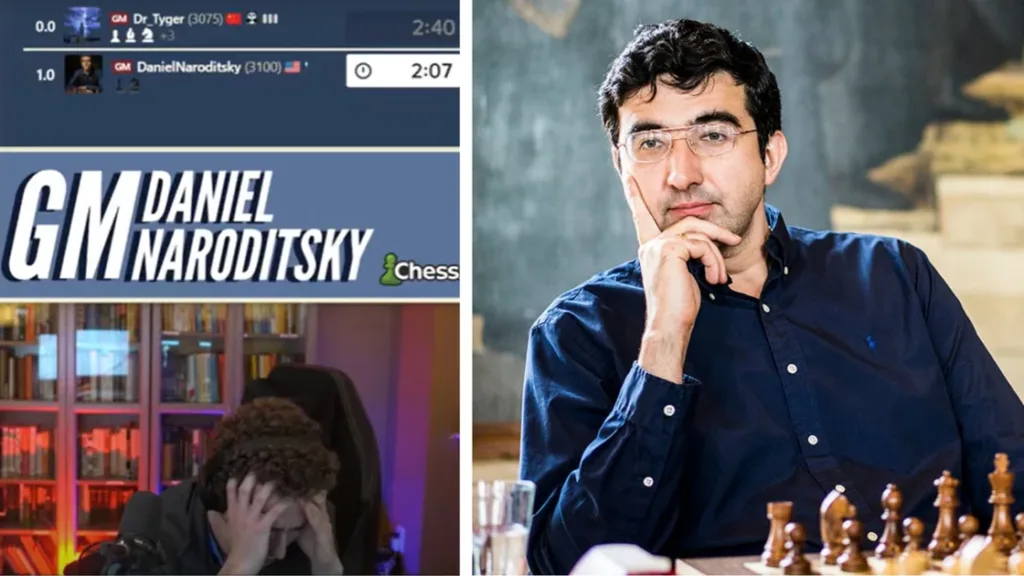Following the sudden and tragic death of American chess grandmaster Daniel Naroditsky, the spotlight has shifted to former world champion Vladimir Kramnik — not just for his prior cheating accusations against Naroditsky, but now for his own aggressive move, demanding police-information and painting himself as a victim of the backlash.
Naroditsky, aged just 29, was found unresponsive at his home in Charlotte, North Carolina on October 19 2025. The case is being reviewed as a possible suicide or overdose by the Charlotte-Mecklenburg Police Department.
For more than a year, Kramnik repeatedly accused Naroditsky of using computer-assisted cheating in online chess. These allegations were widely disputed in the chess community as lacking evidence.
In recent comments to The Post, Kramnik said he had received “dozens of death threats” and threatened legal action against those who claim his campaign contributed to Naroditsky’s death. “What is happening now is … a continuation of a very, very dirty PR campaign,” Kramnik told the outlet.
He also said he had already asked the Charlotte police to investigate the circumstances of Naroditsky’s passing, and that he and his legal team were prepared to initiate proceedings in Switzerland and elsewhere. “I will do everything in my power to get a real investigation into what happened that day… why his shape was deteriorating so rapidly,” he said.
Kramnik’s stance is drawn in stark contrast with the outcry from many in the chess world. Grandmasters such as Hikaru Nakamura and Magnus Carlsen strongly condemned the manner of Kramnik’s accusations, with Nakamura telling viewers Kramnik could “go f*** himself and rot in hell,” and Carlsen calling Kramnik’s behaviour “horrible.”
One of the key tensions now is over narrative: Kramnik says he was acting out of concern for Naroditsky, claiming he publicly shouted “Please help him” after seeing signs of crisis, just one day before the American’s death. He contends that he was trying to alert those close to Naroditsky and that the real fault lies with those who ignored the warning signs.
Meanwhile, the international governing body for chess, FIDE, confirmed that Kramnik’s public statements would be referred to its Ethics & Disciplinary Commission for review. FIDE President Arkady Dvorkovich described the episode as an “appalling” moment for the game.
What’s striking is the shift in framing: Kramnik, once the accuser, has now positioned himself as the one being attacked — insisting that he is under threat, defamed, and ignored. His call for police involvement opens up another front beyond the board: legal and reputational.
But it also raises questions: If Kramnik was so concerned, why did the accusations trail for months without resolution? Why did he rely on public posts instead of engaging formal investigatory mechanisms? Critics say his behaviour amplified the pressure on Naroditsky rather than alleviated it.
The stakes are high. A petition has already gathered tens of thousands of signatures demanding Kramnik be banned and stripped of his titles. FIDE’s next moves — whether to suspend, sanction or even revoke titles — will signal how seriously the organisation treats allegations of harassment, mental-health impact, and reputational harm in the chess world.
For now, the narrative remains contested: a brilliant young grandmaster lost, allegations flying, and a former world champion vowing justice — while many see a very different form of accountability emerging.
I’m the senior editor of Attacking Chess, a keen chess player, rated above 2300 in chess.com. You can challenge me or asking questions at Chess.com.

